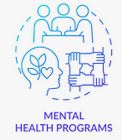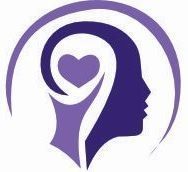



To bridge the career gap by equipping students with the necessary skills in setting up their career goals.

Equip learners at an early age to cope with stress and develop positive mental health.

To reach out to vulnerable communities that may not have a chance to access mental health programs.

To equip parents with basic understanding of children’s uniqueness to foster better parenting and child development.
Globally Mental health is a central concern being engrained in the sustainable development goals. It is integrated into the United Nations' Sustainable Development Goals (SDGs) primarily under SDG 3: Good Health and Well-being. Target 3.4 aims to reduce premature mortality from non-communicable diseases, including mental disorders, and promote mental health and well-being; emphasizing key concern on strengthening prevention and treatment for substance abuse, a behavior often developed in our youth and teenagers while battling mental health stresses. Cedar heart foundation aims to meet this challenge at its core: being the teenagers (students). We advocate to pave the way for students and teachers to manage mental health challenges by offering support in career planning, goal setting, and vision development.
Collaboration is the enhanced benefit or positive outcome that is created when two or more parties work together in a way that could not be achieved by any single party acting alone. It is therapeutic to know that one is not alone in facing mental health concerns. Cedar heart foundation fosters an environment that actively builds and engages in support networks, which are essential to our students and teachers mental wellbeing.
At the heart of Cedar heart foundation is empowering individuals with knowledge, skills, and confidence to take an active role in their mental health journey. It’s about moving from a passive state of being "treated" to an active state of "managing and thriving." This includes educating oneself about conditions, advocating for one's needs, and making informed choices.
Viewing mental health as an ongoing journey of personal development, not a fixed destination. It involves a commitment to self-awareness, learning new skills, understanding triggers, and evolving over time. It celebrates progress, no matter how small and reduces the shame associated with setbacks.
It is essential for students and individuals to have the ability to adjust thoughts, behaviors, and expectations in response to changing circumstances. In mental health, this means being open to trying new coping strategies, a core principle to cedar heart. Adaptability is key to managing life’s inevitable uncertainties and stressors effectively.
CHF is passionate about guiding individuals build mindfulness, practice self-care, and maintain hope when facing anxiety and depression—key elements of resilience. Being resilient does not mean avoiding stress or adversity, it means developing the capacity to bounce back from it. This involves building healthy coping mechanisms, emotional regulation skills, and the flexibility to adapt to setbacks without long-term harm to one's well-being.
Cedar Heart Foundation is grounded in an African environment, with a strong African mindset regarding mental health stresses, seen as an individual's private issue, which is not supposed to be shared with anyone else; otherwise, one will bring shame to their family. Consequently, students find themselves overwhelmed by their personal changes (physical and emotional), the education workload, and the future goal of being the one expected to lift their families out of poverty—all of which cause significant anxiety and depression. When one breaks down instead of understanding the mental distress caused by this overload, one’s mental instability is attributed to spiritual causes - such as ancestral curses, witchcraft, demonic possession, or broken taboos - rather than psychological factors. As a result, one is surrounded by stigma, being labeled as mentally ill or weak. This stigma encourages silence and denial, preventing students/individuals from acknowledging stress or anxiety until it reaches a crisis point.
Cedar Heart Foundation aims to create an environment where everyone feels heard and validated. When the struggles of students, teachers, and communities are acknowledged, it greatly reduces the weight of mental health challenges and empowers them to face and overcome these difficulties.

These values are interconnected. Collaboration creates a foundation of safety that enables Empowerment. An empowered individual is better equipped to build Resilience and practice Adaptability when faced with challenges. This entire process is fueled by a commitment to continuous Development.
Guide students and teachers to manage mental health challenges.
Offering support in career planning, goal-setting, and vision development through
Mental health support and career guidance.
Expertise in understanding the cognitive, emotional, and social development of children.
